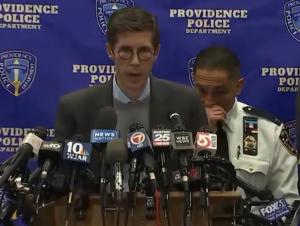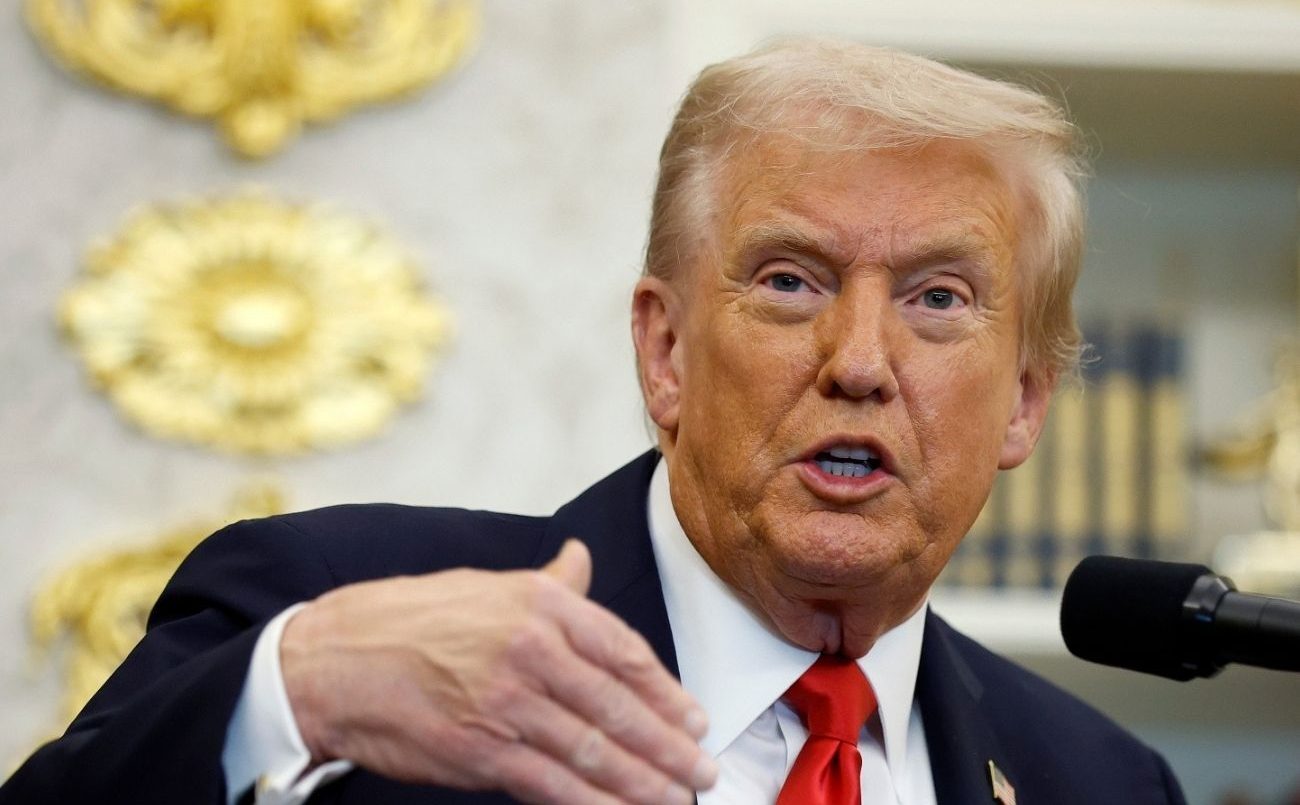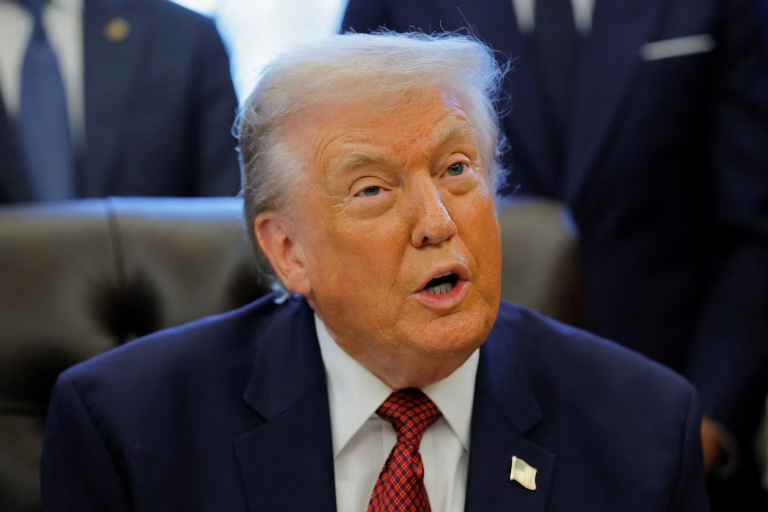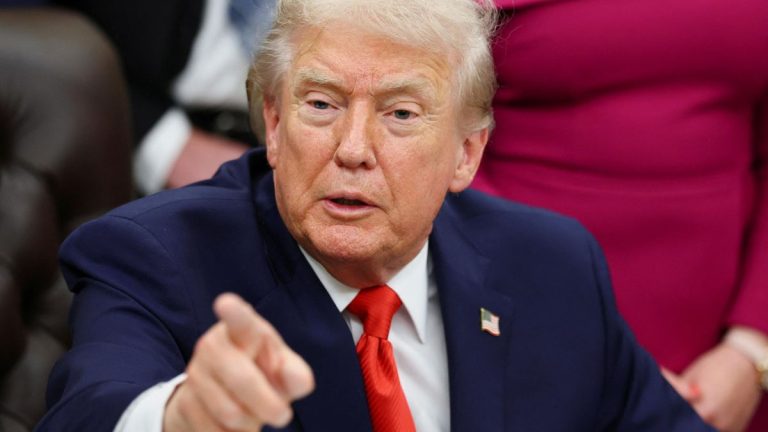The sports and political worlds collided this week after ESPN commentator Stephen A. Smith accused President Donald Trump of taking “revenge” on the NBA — a claim that prompted an unusually direct response from FBI Director Kash Patel. The controversy erupted as U.S. authorities carried out one of the largest sports-related gambling busts in recent memory, implicating several major names across the basketball world.
A Scandal That Shook the NBA
On Thursday morning, the Department of Justice and FBI jointly announced a series of arrests stemming from an investigation into alleged illegal sports betting and fraud schemes connected to professional basketball. Among the high-profile figures taken into custody were Portland Trail Blazers head coach Chauncey Billups and Miami Heat guard Terry Rozier.
Billups was reportedly detained on suspicion of illegal gambling activity, while Rozier faces allegations of participating in a betting ring that relied on insider NBA information to influence odds. Federal agents described the operation as part of a “Mafia-linked gambling and poker network” that had reportedly spanned several states for years.
According to a federal indictment obtained by several media outlets, the FBI uncovered ties between the betting operation and four of New York’s most notorious crime families. Prosecutors said 34 defendants had been indicted on fraud-related offenses, including match manipulation, money laundering, and racketeering.
Authorities also revealed that six players were allegedly involved in a scheme to fake injuries to alter betting lines — a revelation that sent shockwaves through the league. Another 31 individuals were charged in connection with illegal poker operations, while three were named in both cases, suggesting overlapping criminal activity between sports betting and organized crime.
Stephen A. Smith’s “Revenge” Theory
While details of the investigation continued to unfold, ESPN’s outspoken analyst Stephen A. Smith offered his own explosive interpretation of events during Thursday’s episode of First Take. In a passionate monologue, Smith claimed that the sweeping arrests were part of a larger political vendetta driven by President Donald Trump’s supposed animosity toward the NBA and its perceived “left-wing activism.”
Smith declared,
“How many times, with one incident after another, have I said Trump is coming? He’s coming. Bad Bunny is performing at the Super Bowl, and all of a sudden you’re hearing ICE is going to be there looking to engage in mass deportations. The Super Bowl, disrupting things. Big night for the NBA — Wembanyama puts on a show — and it gets smeared because now we’re talking about this story.”
He went on to suggest that Trump’s resentment toward professional sports leagues that publicly opposed him — including the NBA’s frequent social justice campaigns and high-profile criticisms from players — might have influenced the timing or visibility of the FBI’s operation.
Smith continued,
“For me, this is the latest nugget of evidence. That’s not to question the legitimacy of the case; we don’t know all the facts. But anybody that has been around him, anybody that has talked to him and seen his reactions from the sports leagues — they are not surprised at what’s going on today. I’m watching a press conference with the Director of the FBI — tell me when we’ve seen that?”
The comments quickly went viral, sparking a heated backlash online and prompting thousands of responses from both supporters and critics.
FBI Director Patel Fires Back
Within hours, FBI Director Kash Patel appeared on Fox News to directly address Smith’s accusations — a rare move for a sitting bureau director. His response was swift and unequivocal.
“I’m the FBI director,” Patel said. “I decide which arrests to conduct and which not to conduct. That may be the single dumbest thing I’ve ever heard out of anyone in modern history. And I live most of my time in Washington, D.C. It’s right up there with Adam Schiff. We arrest people for crimes.”
Patel’s blunt remarks drew applause from conservative commentators and further inflamed debate over the politicization of law enforcement under the Trump administration. The director emphasized that the investigation into the NBA-linked gambling operation had been ongoing for years — long before Trump’s current term in office — and that the arrests were based purely on criminal evidence, not political considerations.
Political and Media Fallout
The confrontation between Patel and Smith quickly became a trending topic on social media, with thousands of posts dissecting both sides. Supporters of Trump and the FBI director praised Patel’s assertiveness, arguing that Smith’s theory lacked substance and reflected partisan media bias. Others, however, accused Patel of overreacting and expressed concern about the growing tension between journalists and law enforcement officials.
Smith, known for his animated and sometimes controversial takes, stood by his remarks later that evening, clarifying that his comments were “interpretive, not accusatory.” Still, the damage was done — and the intersection of politics, sports, and federal investigations dominated the next day’s headlines.
One prominent political strategist commented,
“When sports commentators start speculating about presidential motives, it shows just how much politics has seeped into every part of American life. This wasn’t just about gambling or corruption — it became another front in the culture war.”
The Broader Context: Trump and the NBA’s Tumultuous Relationship
Smith’s “revenge” narrative draws from a long and often bitter history between Donald Trump and the NBA. Over the years, the president has clashed publicly with numerous figures in the basketball community — from LeBron James and Steve Kerr to coaches and executives who openly criticized his policies and rhetoric.
During his first term, Trump repeatedly condemned the NBA’s embrace of Black Lives Matter protests, its support for player activism, and its decision to allow messages of social justice on uniforms. He often accused the league of alienating fans with “politics on the court,” while several players and coaches fired back, calling his leadership “divisive” and “racist.”
Against that backdrop, Smith’s suggestion that Trump might use the machinery of government to settle old scores resonated with some viewers — even if it lacked concrete evidence.
The Scope of the FBI’s Case
Despite the swirl of political speculation, law enforcement officials maintain that the ongoing investigation is grounded entirely in criminal activity, not politics. Patel described the operation as part of a “multi-year effort to dismantle illegal gambling networks” that exploited the popularity of professional basketball to manipulate betting markets.
Court documents indicate that agents began monitoring suspicious betting patterns nearly five years ago, tracing them through encrypted messaging apps and offshore accounts. The eventual breakthrough came earlier this year, when investigators reportedly intercepted digital communications between organized crime figures and unnamed NBA personnel.
The Department of Justice has confirmed that more indictments may follow, suggesting that the full extent of the scheme has yet to be revealed.
What’s Next for the NBA
The NBA itself has not been accused of wrongdoing but is facing serious reputational damage. League Commissioner Adam Silver released a brief statement expressing “deep concern” over the allegations and promising “full cooperation with federal authorities.”
“The integrity of the game is paramount,” Silver said. “We are monitoring developments closely and will take appropriate disciplinary action once the facts are fully known.”
Meanwhile, franchises across the league are bracing for fallout. If players or coaches are found guilty of manipulating outcomes or leaking insider data, it could trigger sweeping reforms in league oversight, betting partnerships, and internal compliance systems.
A Collision of Power, Politics, and Perception
At its core, the saga illustrates the combustible mix of modern American politics and celebrity sports culture. Trump, long a polarizing figure in both arenas, continues to loom large over national conversations — even in contexts far removed from traditional political disputes.
For the FBI, the controversy underscores the delicate balance between transparency and perception. Patel’s decision to personally rebut a media figure’s theory reflects both the bureau’s frustration with conspiracy narratives and the extraordinary public scrutiny that surrounds its actions.
And for the NBA, this crisis represents more than a legal scandal. It’s a test of credibility — a challenge to prove that its commitment to fair play and accountability can withstand a storm that bridges sports, crime, and politics.
Conclusion
The arrests of Chauncey Billups, Terry Rozier, and dozens of others mark one of the most significant corruption probes in modern professional sports. Yet, as the legal cases move forward, the public debate continues to swirl around the intersection of law, politics, and media influence.
Stephen A. Smith’s provocative claim that Donald Trump orchestrated the crackdown as “revenge” against the NBA may not hold up under scrutiny, but it has reignited a national conversation about how deeply divided America has become — even over the games people play.
FBI Director Kash Patel’s fiery response may have silenced some critics for now, but it also ensured that this scandal will remain more than a sports story. It’s a reflection of the volatile intersection where power, perception, and personality collide — a reminder that in today’s America, even a basketball court can become a political battlefield.

Emily Johnson is a critically acclaimed essayist and novelist known for her thought-provoking works centered on feminism, women’s rights, and modern relationships. Born and raised in Portland, Oregon, Emily grew up with a deep love of books, often spending her afternoons at her local library. She went on to study literature and gender studies at UCLA, where she became deeply involved in activism and began publishing essays in campus journals. Her debut essay collection, Voices Unbound, struck a chord with readers nationwide for its fearless exploration of gender dynamics, identity, and the challenges faced by women in contemporary society. Emily later transitioned into fiction, writing novels that balance compelling storytelling with social commentary. Her protagonists are often strong, multidimensional women navigating love, ambition, and the struggles of everyday life, making her a favorite among readers who crave authentic, relatable narratives. Critics praise her ability to merge personal intimacy with universal themes. Off the page, Emily is an advocate for women in publishing, leading workshops that encourage young female writers to embrace their voices. She lives in Seattle with her partner and two rescue cats, where she continues to write, teach, and inspire a new generation of storytellers.









